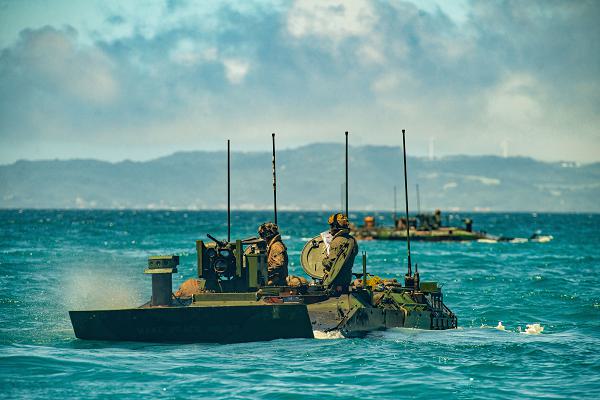
Okinawa, Japan. (June 25, 2024): The Marines have a brand-new vehicle to get from ship to shore and it does so much more. In this photo by Lance Corporal Peyton Kahle, the Marines’ latest Amphibious Combat Vehicles (AAV) attached to Alpha Company, Battalion Landing Team 1/5, 15th Marine Expeditionary Unit, conduct waterborne operations at White Beach Naval Facility here. Designed to replace the Corps aging AAVs that went into service in 1972, this updated version will be the primary means of tactical mobility and direct fire support for infantry battalions into the future.
The new transports come in four configurations: personnel carrier, command and control, recovery, and a 30mm gun variety.
The Personnel Variant (ACV-P) can carry three crewmembers and up to thirteen Marines with two days of combat equipment and supplies. It has the latest armor to protect against blasts, fragmentation, and kinetic energy threats.
The second configuration is designed for combat Command and Control (ACV-C)
that features multiple workstations and advanced digital communications capabilities. This variant provides a modernized, armor protected tactical command post for the regiment or battalion.
Next is the Recovery Variant (ACV-R) intended to rescue and transport wounded Marines from the battlefield. The vehicle offers three times the force protection capability of the old AAVs and is much faster, up to 65mph, on paved roads and six plus knots in the water.
The last version is the 30-mm Gun Variant (ACV-30) that provides precise supporting fires for invading Marines. Additional armament includes a M2 .50 caliber machine gun and an M2MK 19 grenade launcher.
Manufactured by BAE Systems, the Marines have ordered an initial thirty vehicles under a $198 million contract awarded in 2018.


